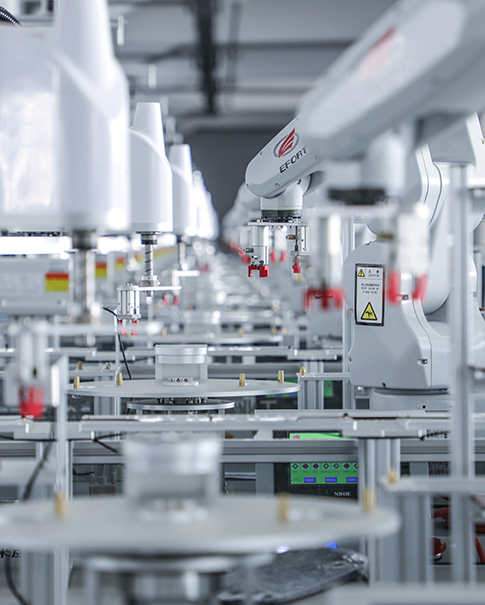In today’s fast-paced manufacturing industry, the key to staying competitive lies in adopting smart supply chains. By harnessing the power of artificial intelligence (AI) and advanced analytics, manufacturers can optimize their operations in ways previously unimaginable. These smart systems analyze vast amounts of data—from customer behavior to social media trends—enabling companies to make data-driven decisions that enhance their processes.
Smart supply chains help manufacturers stay ahead of market fluctuations, reduce costs, and improve production efficiency. As we approach 2025, AI-driven supply chain systems are expected to be a standard tool for over 75% of operators, playing a critical role in forecasting and planning. Here, we’ll delve into the three key applications of smart supply chains that are transforming the manufacturing landscape.
One of the most significant benefits of a smart supply chain is its ability to forecast demand accurately. By analyzing historical data, customer behavior, and market trends, AI algorithms can predict future demand with impressive precision. Manufacturers can adjust their production plans in real-time, ensuring they are always prepared for shifts in the market.
For instance, smart systems can flag sudden increases in consumer demand or potential shortages in supply, allowing manufacturers to make proactive adjustments to their operations. This agility helps reduce lead times and ensures that businesses can meet customer expectations consistently.
In the world of manufacturing, timely delivery is crucial. Smart supply chains utilize AI to optimize transportation routes, reducing delays and minimizing transportation costs. By analyzing data such as traffic patterns, weather conditions, and delivery schedules, AI can determine the fastest and most cost-effective delivery routes.
This application is particularly valuable for companies with complex logistics networks. By leveraging real-time data, businesses can enhance their supply chain visibility and improve the efficiency of their operations. This results in quicker deliveries, reduced costs, and ultimately, a better customer experience.
Efficient inventory management is another area where smart supply chains make a significant impact. Traditional inventory systems often suffer from inefficiencies, such as overstocking or stockouts, which can disrupt production schedules and lead to excess costs. Smart supply chains, on the other hand, can predict inventory needs based on demand forecasts and historical data.
AI-powered systems track inventory in real-time, ensuring that manufacturers always have the right amount of stock on hand. This helps reduce waste, prevent stockouts, and ensure a smoother production process. Moreover, it can help businesses optimize their warehouse space and reduce unnecessary storage costs.
AI’s ability to adapt to changing conditions is what truly sets smart supply chains apart. By leveraging predictive analytics and real-time data, manufacturers can quickly adjust to unexpected disruptions, such as supply shortages or shifts in demand. This agility allows businesses to maintain a high level of responsiveness, even in the face of unforeseen challenges.
Moreover, AI-powered supply chains can continuously learn and improve over time, further enhancing their ability to adapt to new trends, customer behaviors, and market dynamics. As a result, companies can stay ahead of their competition and remain flexible in an increasingly volatile market.
As sustainability becomes a priority in manufacturing, smart supply chains play a crucial role in reducing environmental impact. By optimizing resource use and reducing waste, AI-driven systems can help manufacturers minimize their carbon footprint. Additionally, smarter transportation and logistics management can result in fewer emissions and reduced energy consumption.
Sustainable practices are no longer a nice-to-have but a must-have in today’s manufacturing landscape. Smart supply chains enable manufacturers to meet sustainability goals while also improving their bottom line. By using AI to optimize every aspect of the supply chain, businesses can create a more efficient, eco-friendly, and sustainable operation.
The integration of smart supply chains in manufacturing is no longer just a trend—it’s a necessity for businesses aiming to stay competitive in a rapidly changing market. With AI-powered tools for demand forecasting, route optimization, inventory management, agility, and sustainability, manufacturers can achieve unprecedented levels of efficiency and responsiveness.
As we look toward the future, the role of smart supply chains will continue to expand, driving the next generation of manufacturing innovation. Companies that embrace these technologies today will be well-positioned to thrive in an increasingly complex and dynamic global market.
Email us
Reply within one working dayVisit us
32D Guomao Building, No.388, Hubin South Road, Siming DistrictDisclaimer : Salesplc sells new and surplus products and develops channels for purchasing such products. This website has not been approved or recognized by any of the listed manufacturers or trademarks. Salesplc is not an authorized distributor, dealer, or representative of the products displayed on this website. All product names, trademarks, brands, and logos used on this website are the property of their respective owners. The description, explanation, or sale of products with these names, trademarks, brands, and logos is for identification purposes only and is not intended to indicate any association with or authorization from any rights holder.
Copyright @2024 SalesPlc Limited. Sitemap
/ Blog
/ XML
/ Terms And Conditions
/ Privacy Policy
 Network Supported
Network Supported
